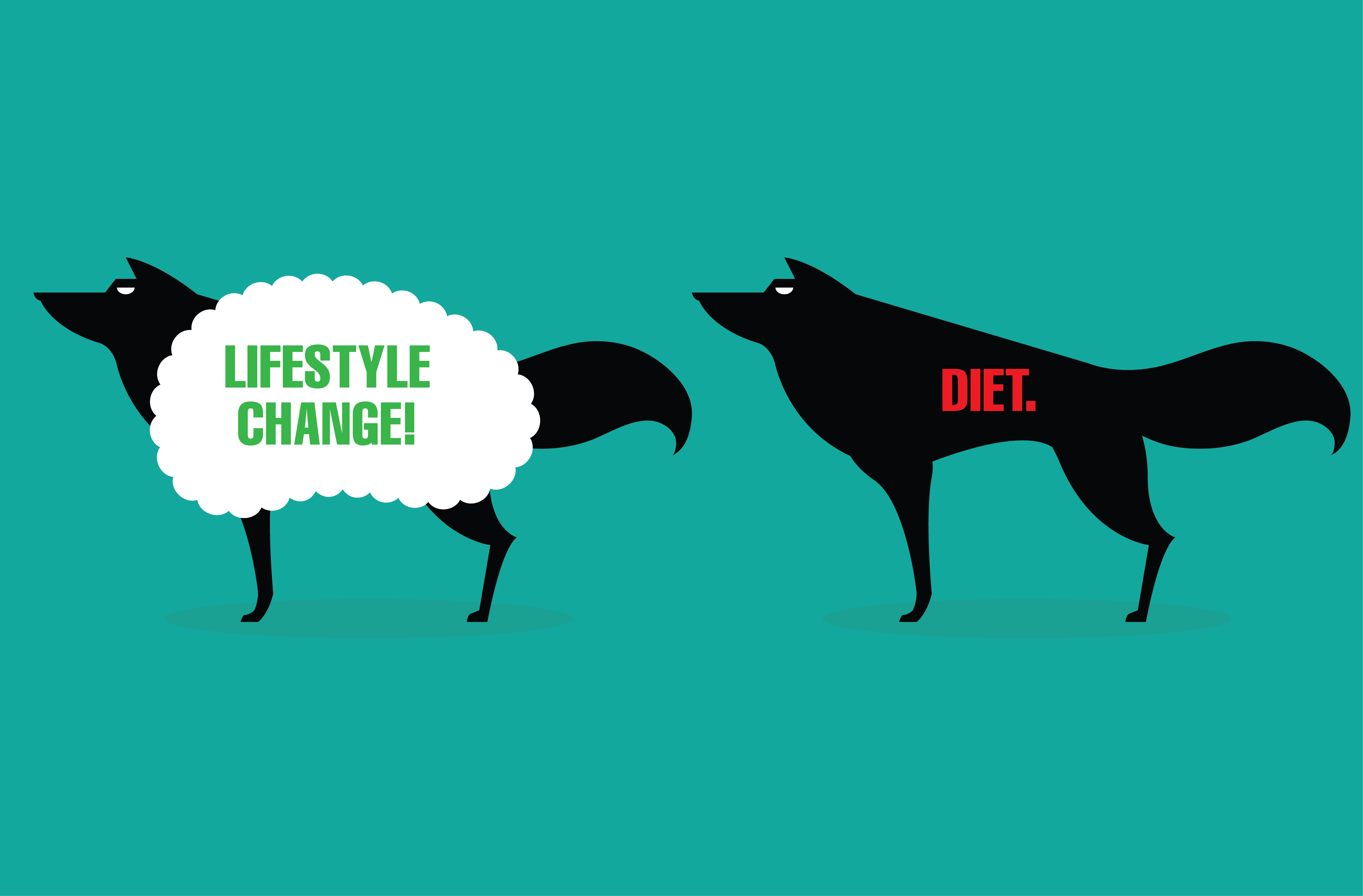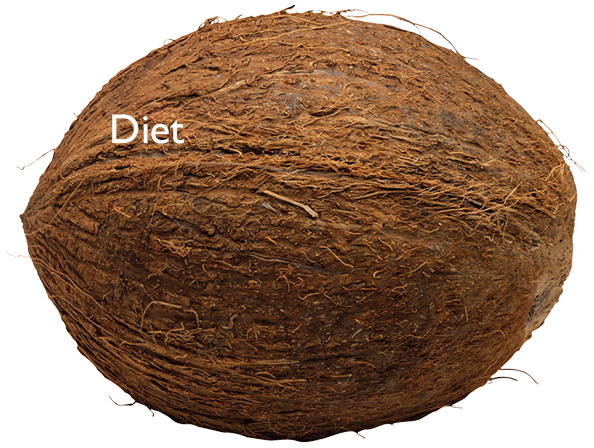
The diet industry is a crafty beast. They’ve known diets don’t work for years (but have been happy to take your repeat business nonetheless!). But now they know YOU know diets don’t work as well. They know you are looking for a way of eating healthy without dieting, but they also need to sell you the promise of fast, easy weight loss (i.e., a diet) to get you to keep buying their products, programs, and of course, food. So they’ve come up with a range of options for you that “aren’t diets” (but actually still are!)…
And we are falling for it!
We’ve seen the coming and going of Atkins, Shakes, Paleo, and Intermittent Fasting…now it looks like Keto is shaping up to be the next not-a-diet diet (funny…it’s a lot like Atkins… 🤔). ALL of these have been advertised as the way out of your weight problems, ALL of them are diets, and NONE of them have any evidence showing they result in lasting weight loss.*
But my plan is not a diet (is it?)
So you can spot the wolf-in-sheep’s clothing, I want you to know exactly what makes a way of eating a diet, so you can be smarter than the diet industry when they tempt you with their alluring marketing tricks (because we both know it will happen – the diet industry does psychology better than Freud)!
You’re on a diet if you are doing any of the following:
(note: you only need one to qualify)
- Counting, restricting or severely restricting calories.
- Skipping meals or purposely delaying eating.
- Forbidding, banning, or not allowing yourself to eat certain foods.
But the most certain way to tell if you are on a diet is that when you are making food choices you are:
4. Focusing on how food affects your weight.
In a nutshell, no matter what name you call it, all ways of eating where weight is the focus are diets.

But of course not all diets are the same, and recent research confirms this**. While dieting does not work for 97% of people who try it, it has varying effects on people depending on the nature of the diet.
Rigid diets.
These diets may have up to all four of the above dieting factors, and are the worst types of diets. When we look beyond the “weight loss honeymoon period” we see they are related to:
- Negative moods (e.g., depression)
- Poor body image
- Lack of sensitivity to hunger and fullness
- Binge eating
- Food preoccupation, &
- Higher bodyweight
It’s pretty different picture to the one the before-and-after photos paint, isn’t it (I think of this as the “after-after” picture)?
Flexible diets.
These diets may only have one or two of the four dieting factors, and are not as bad. They aren’t related to mood, body-image, or weight (either positively or negatively) and are “only” related to:
- Lack of sensitivity to hunger and fullness
- Binge eating, &
- Food preoccupation
So if you pick a “good” flexible diet, you may even get through it without any harm done (although it probably won’t work, and will still be a waste of your time, energy, and money)! Although they may claim to be different, flexible diets are the siblings, cousins, or at best distant relatives of rigid ones.
So, as my colleague Dr Rick Kausman so eloquently put it:
If Not Dieting, Then What?
Intuitive eating.
Intuitive eating has NO dieting factors, and is related to:
- Greater life satisfaction
- Increased positive mood
- Decreased negative mood
- Positive body image
- Sensitivity to hunger and fullness
- Lower binge eating
- Lower food preoccupation, &
- Lower bodyweight
Intuitive eating is not a descendant of dieting, is a whole different species.
Dieting aims to control food with external rules,
Intuitive eating supports eating with inner wisdom.
Dieting wages war on weight,
Intuitive eating makes peace with bodies.
Dieting starts with myth and ends in disappointment,
Intuitive eating starts with reality and ends in fulfillment.
You probably get by now that I’m not too keen on helping you try to become one of the 3% who wins at the weight loss game (although it’s completely understandable if you still want that – the mind always takes time to change, even when presented with new information – it took us centuries to believe the world was round!). Incorporating psychology into some rehashed version of what you’ve already done before would be like me using psychology to help you try to get rich at the casino – while it is possible, the risk is just too big, and I won’t put you in harm’s way any more than you have already been (even if that IS what you want!). And, let’s face it, if you were destined to be a success story with one of the varieties of the old weight loss method, you probably would be already, and you wouldn’t be reading this blog!
I tell you what I AM excited about though:
The possibility of helping you step outside a game set up for you to lose. The opportunity to show you a brand new game that’s way more fun and sets you up for LASTING SUCCESS! Recently, Christine who has completed our Intuitive Eating Program and already made the journey for herself, recently wrote to me saying:
“I am feeling awesome: the no diet approach is really working for me the shift in mindset is remarkable. I move whenever I get the chance and l am really enjoying each day. l cannot put in words the difference in my mindset and how l view myself…l have achieved my goal of living a naturally healthy lifestyle.”
Doesn’t this sound like benefits you’d like for yourself?
A positive relationship with food.
A love of physical movement.
Healthy habits that happen without effort.
If so, I’m going to write you soon to show you EXACTLY what intuitive eating is, and how you can start to become someone who eats well without trying.
I created this blog for people just like you.
If you found it valuable, please help me share it with them!
*Honestly, if a diet ever does show significant and lasting weight loss, I will promote it to my clients. Whenever the “next big thing” comes up, I always read the research on it, only to be inevitably, but expectedly, disappointed (followed by feeling quite angry that “health professionals” are actually backing this stuff that has no good science behind it).
**Tylka, T., L., Calogero, R.M., & Danielsdorrir (2015). Is intuitive eating the same as flexible dietary control? Their links to each other and wellbeing could provide an answer. Appetite, 95, pp 166-175.




